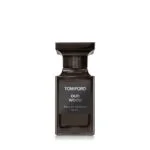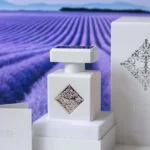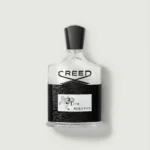Inspired by perfumes have gained a lot of popularity in recent years, as they offer a more affordable alternative to some of the most sought-after fragrances on the market. However, there are legal aspects to consider when it comes to creating and selling inspired by fragrances.
The first and most important aspect is intellectual property. Original fragrances are protected by intellectual property laws, such as trademarks and copyrights, which prevent others from using or replicating the fragrance without permission. This means that inspired by fragrances cannot use the same name or packaging as the original fragrance, as this would infringe on the intellectual property rights of the original brand.
However, inspired by fragrances are allowed to take inspiration from the original fragrance and create a new scent that shares some similarities, as long as they do not use any protected intellectual property. For example, they can use a similar scent profile or a similar set of ingredients, but they cannot use the same name, packaging or branding as the original fragrance.
Another legal aspect to consider is the use of synthetic ingredients. While inspired by fragrances can use synthetic ingredients to create a new scent, they must ensure that they do not infringe on any patents or trademarks held by the original fragrance. This means that they cannot use patented synthetic ingredients or imitate any proprietary scent technologies used in the original fragrance.
In addition, inspired by fragrances must comply with regulations set by regulatory bodies, such as the International Fragrance Association (IFRA) and the European Union’s REACH regulations. These regulations limit the use of certain ingredients, such as allergens or chemicals that are harmful to human health, in fragrances. Inspired by fragrances must ensure that they comply with these regulations and that their ingredients are safe for use.
Finally, inspired by fragrance manufacturers must ensure that they do not engage in unfair competition practices. This means that they cannot create false or misleading advertising, use deceptive trade practices or engage in any other practices that are considered unfair competition.
The difference between an “inspired by” perfume and a counterfeit perfume lies in their intent and legitimacy.
Intent:
Inspired by Perfume: An “inspired by” perfume is created with the intention of capturing the essence or certain aspects of a popular or well-known fragrance. It is not claiming to be the exact replica or copy of the original perfume but aims to offer a similar experience or scent profile.
Counterfeit Perfume: A counterfeit perfume, on the other hand, is designed to intentionally deceive consumers by imitating a well-known brand and claiming to be the genuine product. Counterfeit perfumes are created with the intent to deceive and sell as counterfeit versions of popular fragrances, often at lower prices.
Legitimacy:
Inspired by Perfume: Inspired by perfumes are legitimate products in their own right. While they may be inspired by the characteristics or scent of a popular fragrance, they are typically created by different brands or companies and have their own unique formulations and branding. Inspired by perfumes do not infringe upon trademarks or copyrights of the original perfume.
Counterfeit Perfume:
Counterfeit perfumes are illegal and infringe upon the intellectual property rights of the original brand. They are unauthorised replicas that imitate the packaging, branding, and scent of a genuine perfume. Counterfeit perfumes are typically of inferior quality, as they are produced without proper regulations and quality control measures.
Transparency:
Inspired by Perfume: Manufacturers of inspired by perfumes are usually transparent about their products, clearly indicating that they are not affiliated with or endorsed by the original brand. The packaging and branding of inspired by perfumes often have distinct differences to avoid confusion with the original fragrance.
Counterfeit Perfume:
Counterfeit perfumes are intentionally made to deceive consumers by replicating the packaging, branding, and even scent of the original perfume. They often use similar logos, bottle designs, and names to mislead customers into believing they are purchasing the genuine product.
In summary, inspired by perfumes offer an alternative interpretation or similar scent profile to popular fragrances without claiming to be exact replicas. They are legitimate products created by different brands. Counterfeit perfumes, on the other hand, are illegal imitations that infringe upon intellectual property rights, deceive consumers, and often offer inferior quality. It’s important for consumers to be aware of these distinctions and make informed choices when purchasing fragrances.









